Humans have been fascinated with the aroma of food since the Paleolithic era, but human sense of smell is full of contradictions.

Perhaps fish sauce is the Vietnamese condiment and food that has retained its essence through many generations. Just like the Japanese still try to retain that essence for soy sauce.
It is a food that is fermented with salt and undergoes a medium-term fermentation process. Consumers are distorted in their choice of fish sauce, which is determined by the manufacturer, based on the protein content of the product.
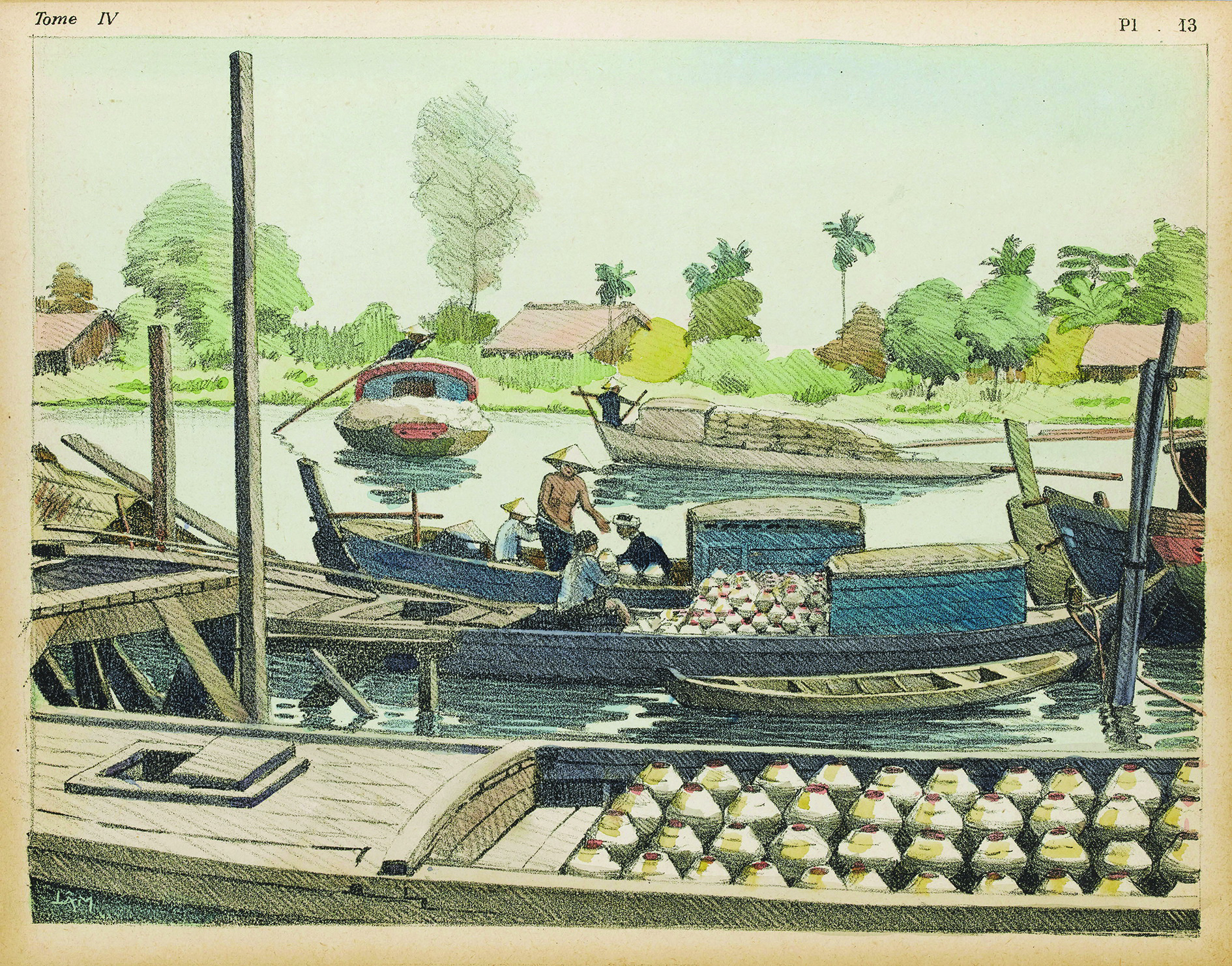
Transporting fish sauce, picture from the illustrated monograph on Indochina: Cochinchine (Monographie dessinée de l'Indochine, Cochinchine) Volume 4 (1935). Source: Flickr/manhhai
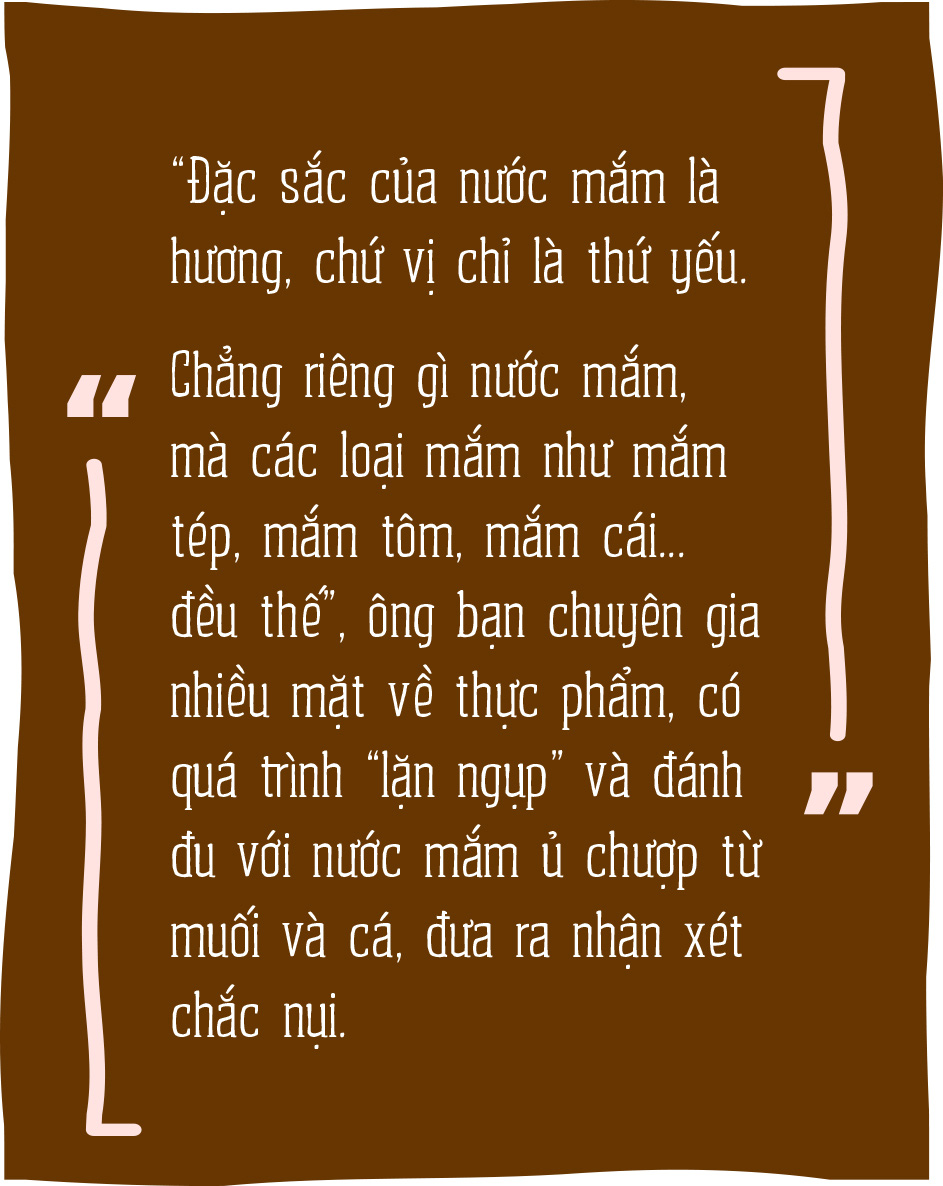
I asked: So why don't people build standards for good fish sauce based on aroma and taste, but only on protein content, which is taste. While according to you, "the higher the protein content of fish sauce, the less the smell of fish sauce".
My friend just shrugged.
Perhaps, science , up to now, is still "stuck" with analyzing and evaluating the aroma of fish sauce and the aroma of food in general. The aroma of fish sauce in each region has its own characteristics.
In the same batch of fermentation, each barrel of fish sauce has its own flavor, exactly like the soy sauce fermented in Japan. That country has the highest level of science in the world , but it cannot be explained.
Author Trang Thien more or less illustrates the flavor and taste of fish sauce through the following passage:
"(…) Back then, every time a fish sauce vendor stopped by the house, it was a huge commotion. Because usually no one in the family was confident enough in their housekeeping skills to be able to proudly decide on the value of a fish sauce.

Then, cautiously, she stuck out her tongue and took a sip of the fish sauce. Then, silently and thoughtfully, she handed the bowl to my aunt...
But my grandmother, eager and impatient, quickly waved her hand. And my aunt immediately passed the bowl of fish sauce to her. Smelled it again, tasted it again. Then it was my aunt's turn: smelled it again, tasted it again...
Aunt said: - Better than last Thursday.
My aunt agreed cautiously: - It's milder after a sip, but you should try sipping it for a while...
My grandmother commented: - Hey, what do you think? I don't like this color, and its taste isn't good enough.

It must be said that the gift God gave to mankind to create flavor for food in general and fish sauce in particular is the sunshine of tropical countries. In our country, the flavor of fish sauce changes partly due to the sunshine.
The sun in the South is more abundant, while the sun in the North is more harsh. That's why fish sauce was once "racist" by the West in the process of product quality management: it had to be clearly stated on the label whether it was Annam or Tonkin fish sauce.
As for people from a region, they are addicted to the smell of fish sauce from that region because they eat it too much.
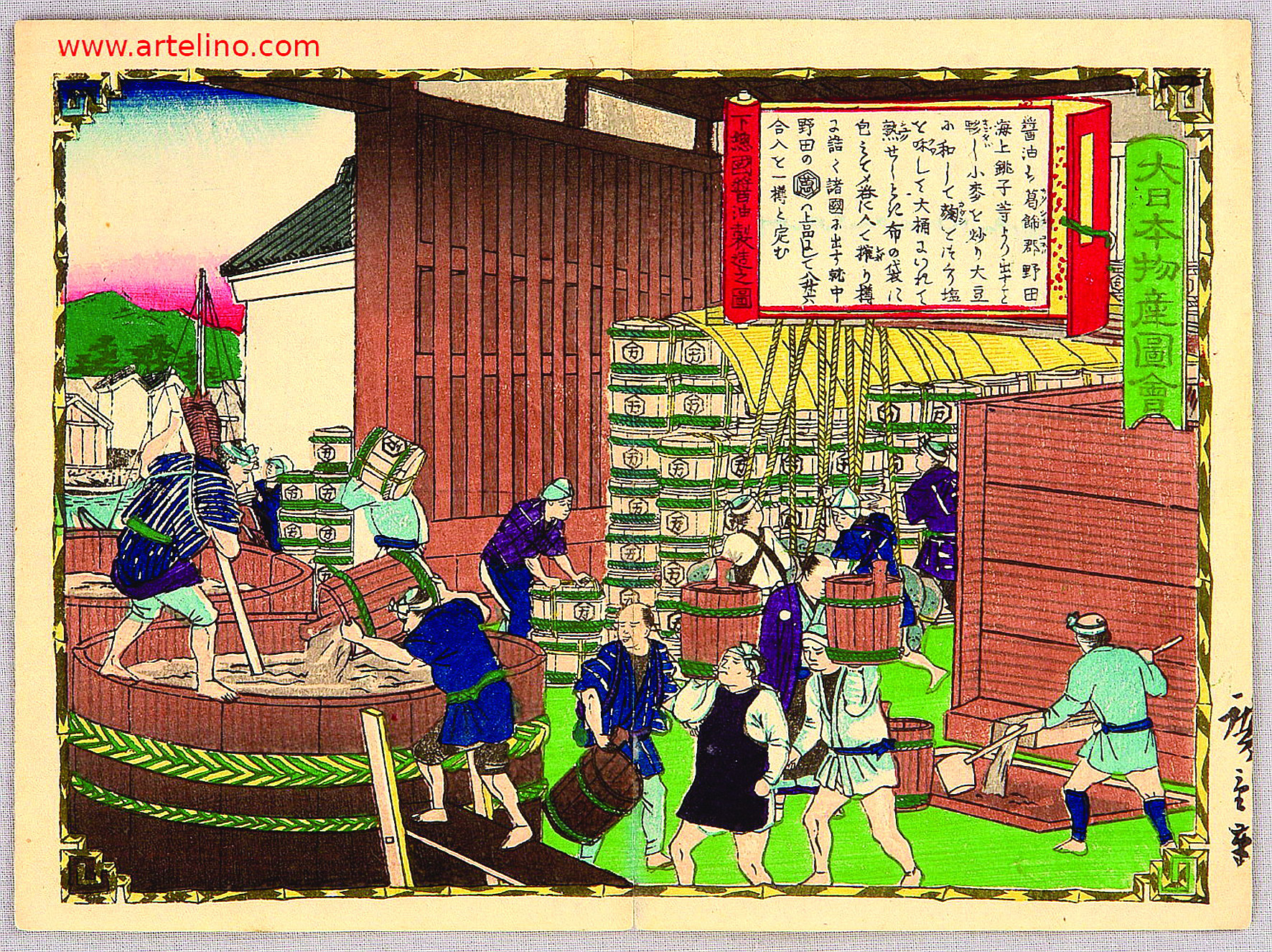
Japanese soy sauce production. Painting by Utagawa Hiroshige III (1842-1894). Source: ukiyo-e.org
Actually, there is still a need to explain the phenomenon of addiction accompanied by a longing for a food consumed throughout a period from childhood to adulthood. Isn't it true that advertisements that understand the psychology of mothers have introduced fermented fish sauce as a spice for children's porridge?
The feeling of longing for that scent is always evident when we eat food that we are used to. Scientists call it the "Proust phenomenon".


Actually, not only fish sauce has its own unique flavor.
Humanity has been fascinated with the aroma of food since the Paleolithic period, when people discovered the method of smoking food, not only for preservation purposes but also to enhance flavor.
Bacon, for example, is a food that is usually salted with venison or pork loin and then smoked.
Because these are places where "it's usually not sunny today" the preservation method of drying salt is replaced by smoked salt.
We can compare the strong aroma of dried squid with that of dried squid. Choosing dried squid is to preserve the flavor, ignoring the aroma, perhaps a Vietnamese characteristic.
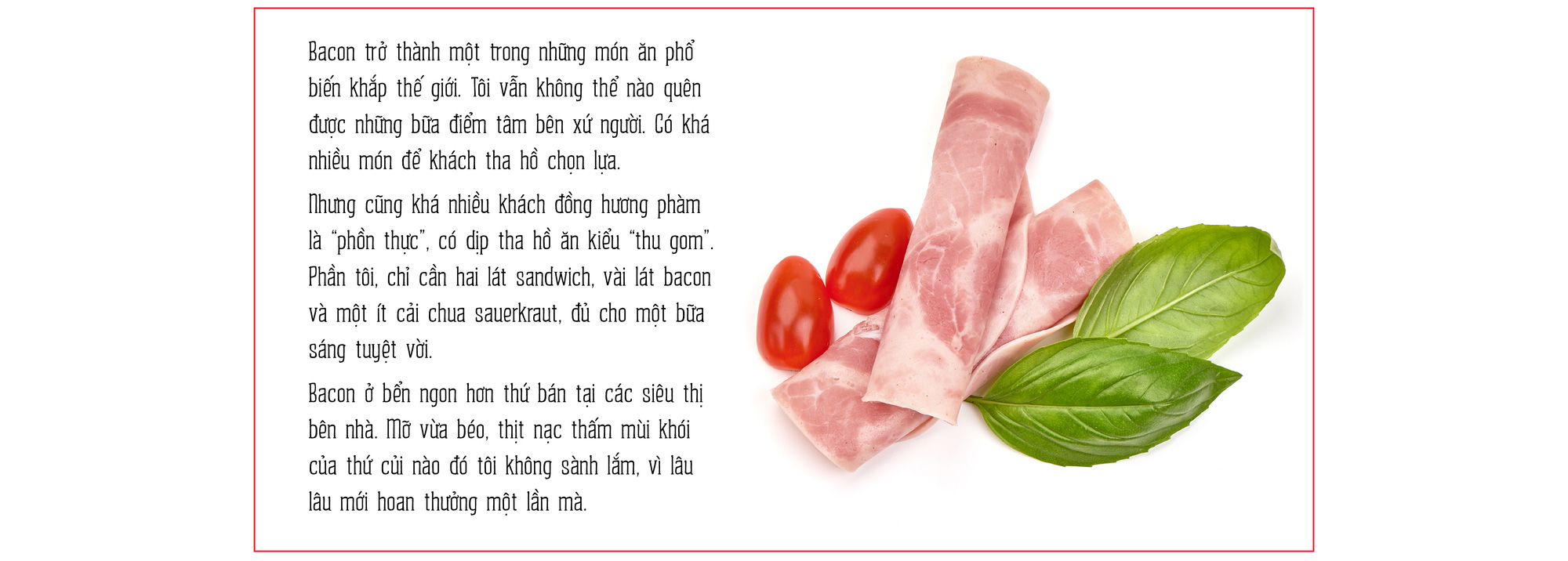
In our country, people in the highlands also preserve smoked food in the form of "kitchen hangers". They just hang the food - meat, fish - from the time they are cut fresh until they are taken down to eat.
Meat/fish can be eaten raw, but grilled through a browning process to enhance the flavor and make it more distinctive. The famous product of this region - called "R" (short for region in French) during the war - is buffalo jerky.
The meat is preserved "throughout the leaf-falling season" thanks to the smoke and heat, so not much salt is needed. When it is done, it must be dipped in various sauces.
In the South, people have also discovered the dish of grilled snails, even though they are still alive. This method is based on nature. Instead of hibernating like some other species, the apple snail and the latticed snail go into a dry state.
During the dry season in the rice fields, they lie still underground, sleeping until water comes to the fields. Putting them in a hanging basket over the stove is like letting them go through a dormant period.


A friend in France said: Whenever the local children come to visit, they always try to sniff out the scent of fish sauce. They sniff it so they can hold their noses and laugh at the strange Vietnamese food.
The smell of shrimp paste makes them cover their noses and frown even more. They forget that many Vietnamese people cannot stand the smell of Camembert cheese (traditional) or Rocquefort cheese. The smell of surströmming, a Nordic herring sauce (specifically Swedish), makes them gag even more.
That smell is worse than the smell of anchovy fish sauce on a long journey from Saigon to Can Tho. My teacher Triet once explained the phenomenon of the relative smell of humans and dogs in relation to… feces.
Human sense of smell is indeed perverse. Diners cannot distinguish clearly between the aromas produced by bacteria from amino acids and "ammonium" acids like scientists.
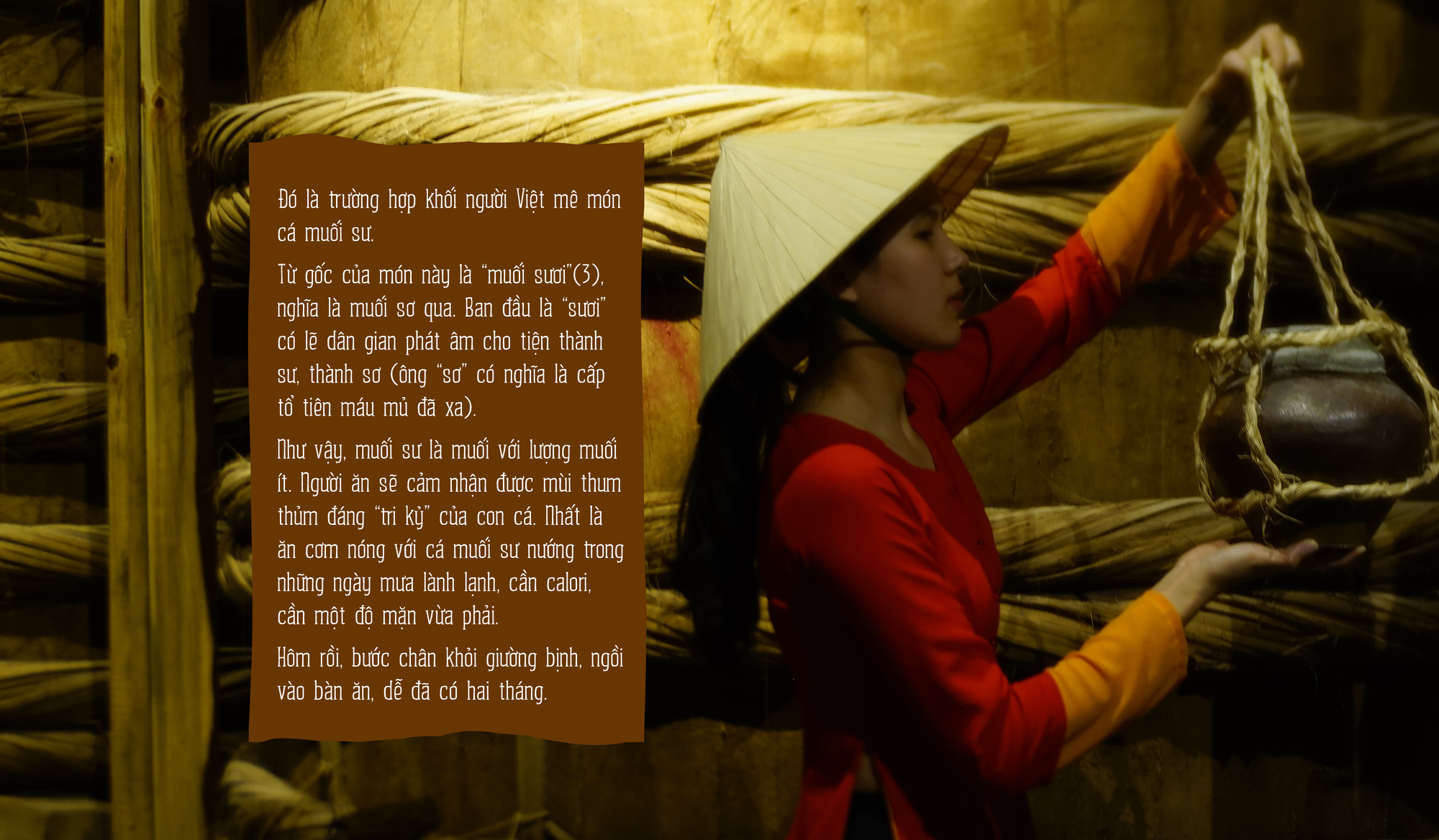
Suddenly, I miss the smell of fish sauce as much as the nun character in the story "Long Tran" by Nguyen Thi Thuy Vu. I have a bottle of fish sauce sent by my friend Tran Gia from Binh Dinh, mixed with chili.
My friend Phung, a large fish sauce factory in Phan Thiet, whose main base had to take refuge in Ca Na (Phan Thiet chose tourism instead of developing fish sauce), once instructed: to enjoy the aroma of fish sauce, you must put a little in a bowl, hold your breath, then inhale.
But the bowl of Binh Dinh fish sauce with chili peppers is not worth holding your breath. Somehow, the chili peppers make it smell so fragrant. The color of Binh Dinh fish sauce is brighter than that of my hometown Nha Trang.
Probably the round, sun-dried fish sauce, almost entirely anchovies, reminds me of Trang Thien.
(1) Vu The Thanh, Eat for pleasure or eat for fear, volume III.
(2) Trang Thien, Eating and Drinking, in the collection My Homeland.
(3) Huynh Tinh Paulus Cua, Dai Nam national phonetic dictionary, volume II.
Source: https://tuoitre.vn/huong-nhot-niem-nho-20240713140048982.htm






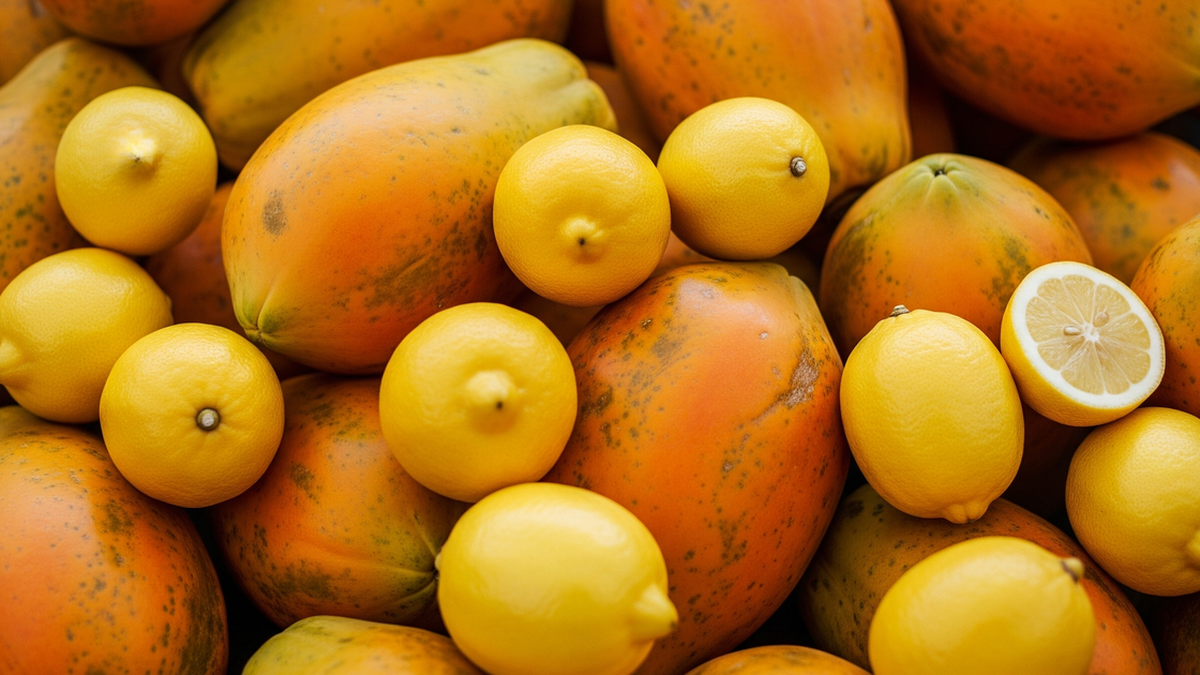


























































































Comment (0)